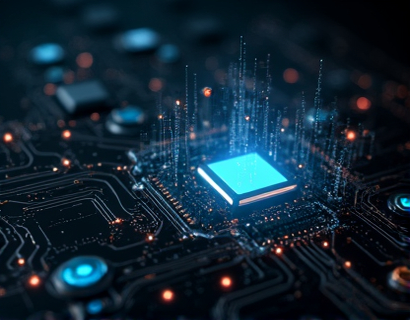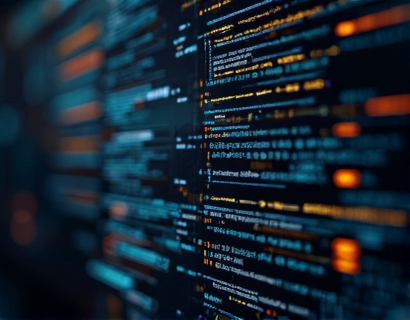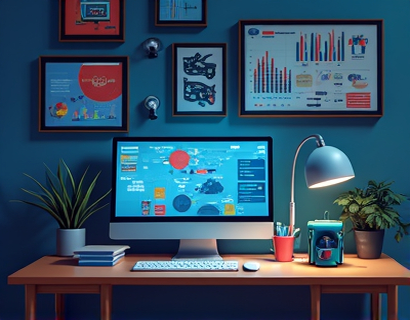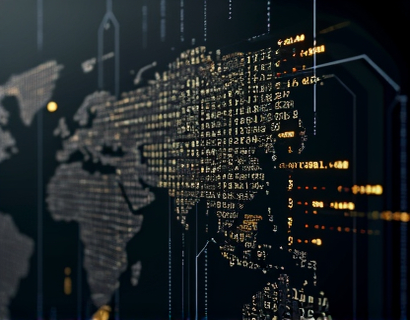AI-Driven Life Organization: Master Personal Productivity with Intelligent Tools
In the fast-paced modern world, the ability to manage time and tasks efficiently is more crucial than ever. The integration of Artificial Intelligence (AI) into personal organization tools has opened new avenues for enhancing productivity and achieving a balanced life. This article delves into the transformative power of AI in personal organization, exploring how intelligent tools can simplify tasks, enhance focus, and streamline daily routines. Whether you are a busy professional, a student, or someone looking to improve your personal life, understanding and leveraging AI-driven tools can significantly boost your organizational skills and help you achieve a more structured, fulfilling life.
The Role of AI in Personal Organization
AI technology has evolved to the point where it can understand and predict human behavior, making it an invaluable asset in personal organization. Intelligent tools powered by AI can analyze your habits, preferences, and schedules to provide personalized recommendations and automate repetitive tasks. These tools go beyond traditional calendar apps and to-do list managers by offering a holistic approach to organizing your life.
One of the key advantages of AI in personal organization is its ability to learn and adapt over time. As you interact with these tools, they become more attuned to your needs, suggesting optimal times for tasks, reminding you of important events, and even anticipating your requirements. This level of customization ensures that the tools remain relevant and useful, reducing the likelihood of them gathering digital dust.
Simplifying Task Management
Task management is a critical aspect of personal organization, and AI tools have revolutionized the way we handle tasks. Traditional task managers require manual input and constant updates, which can be time-consuming and prone to errors. AI-driven task management tools, however, can automatically capture tasks from various sources such as emails, messages, and notes, and organize them into a coherent list.
These tools often include features like priority setting, deadline reminders, and progress tracking. For instance, an AI tool can analyze the urgency and importance of tasks and suggest the best order in which to complete them. It can also identify dependencies and suggest grouping related tasks together, ensuring that you focus on high-priority items first. This not only saves time but also reduces stress by providing a clear roadmap for the day.
Enhancing Focus and Concentration
Maintaining focus in a world filled with distractions is a significant challenge. AI tools can play a pivotal role in enhancing your concentration by creating an optimal work environment. One such feature is the implementation of the Pomodoro Technique, a time management method that breaks work into intervals, traditionally 25 minutes in length, separated by short breaks. AI can automate this process, ensuring that you work in focused bursts and take regular breaks to recharge.
Additionally, AI can help minimize distractions by analyzing your work patterns and identifying the times when you are most productive. It can then suggest scheduling important tasks during these peak periods and blocking distracting apps or notifications during these times. Some advanced tools even use noise cancellation and ambient sound generation to create the perfect auditory environment for deep work.
Streamlining Daily Routines
Daily routines are the backbone of a well-organized life. AI tools can significantly streamline these routines by automating repetitive tasks and providing insights to optimize your day. For example, an AI-powered morning routine assistant can analyze your schedule, weather forecasts, and traffic conditions to suggest the best time to leave for work or appointments. It can also prepare a personalized news briefing or meditation session to start your day on the right note.
Meal planning and grocery shopping are other areas where AI can make a substantial difference. By tracking your dietary preferences and nutritional goals, an AI tool can generate meal plans and create shopping lists, ensuring that you eat healthily without the hassle of constant planning. Some tools even integrate with smart refrigerators to monitor inventory and suggest recipes based on available ingredients.
Goal Setting and Achievement
Setting and achieving goals is a fundamental aspect of personal growth and productivity. AI tools can assist in this process by providing structured frameworks and tracking your progress. These tools can help you define clear, measurable goals and break them down into actionable steps. They can also set realistic deadlines and remind you of upcoming milestones, keeping you on track.
One of the most powerful features of AI in goal setting is its ability to provide regular feedback and adjustments based on your performance. If you are consistently falling behind on a particular goal, the tool can analyze the reasons and suggest strategies to get back on track. This continuous support ensures that you stay motivated and focused on your objectives.
Integration with Smart Devices
The true power of AI in personal organization is amplified when integrated with smart devices. Smart home devices, wearables, and other IoT (Internet of Things) devices can work in tandem with AI tools to create a seamless and efficient environment. For instance, your AI assistant can communicate with your smart thermostat to adjust the temperature based on your schedule, ensuring that your home is comfortable when you arrive.
Wearable devices can sync with AI tools to track your physical activity, sleep patterns, and stress levels, providing valuable insights into your overall well-being. This data can be used to suggest improvements in your routine, such as scheduling exercise sessions or meditation breaks. By integrating with these devices, AI tools offer a comprehensive view of your daily life, enabling more informed decision-making.
Overcoming Common Challenges
While AI-driven tools offer numerous benefits, there are common challenges that users may face. One of the primary concerns is privacy and data security. It is crucial to choose tools from reputable providers that prioritize user data protection and comply with privacy regulations. Reading reviews and checking the provider's privacy policy can help ensure that your information is safe.
Another challenge is the initial learning curve associated with using new technology. However, most AI tools are designed with user-friendliness in mind, featuring intuitive interfaces and comprehensive guides. Taking the time to familiarize yourself with the tool's features and customization options can greatly enhance your experience.
Conclusion
The integration of AI into personal organization tools represents a significant leap forward in enhancing productivity and achieving a balanced life. By automating repetitive tasks, providing personalized recommendations, and integrating with smart devices, these tools offer a comprehensive solution to the challenges of modern living. Embracing AI-driven organization is not just about using technology; it's about empowering yourself to lead a more structured, efficient, and fulfilling life. As AI continues to evolve, the potential for even greater advancements in personal organization is immense, making it an exciting time to explore and leverage these intelligent tools.











































